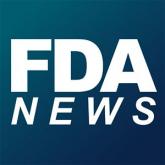News

Cardiology groups push back on hydroxychloroquine, azithromycin for COVID-19
Both drugs are known to cause torsade de pointes and increase the risk of other arrhythmias, say the AHA, ACC, and HRS.
Owing to “extraordinary public interest” in the off-label use of these drugs, numerous state boards of pharmacy have enacted emergency restrictions on the inappropriate dispensing of chloroquine and hydroxychloroquine, says the Quinism Foundation , a nonprofit organization that supports education and research on medical conditions caused by chloroquine and related drugs. And because of the very real potential for substitution of more dangerous quinolines (such as mefloquine) in place of chloroquine and hydroxychloroquine, the foundation recently called on state boards of pharmacy to enact uniform restrictions on the dispensing of all quinoline antimalarial drugs, with the understanding that any emergency use of any of these medications for public health purposes as attempted pandemic countermeasures would be best coordinated nationally through distribution from the Strategic National Stockpile.
In the meantime, research into hydroxychloroquine’s effectiveness is ongoing. “Coming at it from every angle”—that’s how Terry Welch, spokesman for the Walter Reed Army Institute of Research told Task & Purpose the Army is “leveraging specific competencies” to attack the COVID-19 problem. Among other things, WRAIR’s Emerging Infectious Diseases Branch (EIDB) is working to develop a vaccine against COVID-19 infection, including several versions of a novel vaccine candidate that has been tested in humans. WRAIR has also been conducting research into novel treatments, such as drug candidates similar to those successfully developed to treat malaria, and monoclonal antibodies.
WRAI was able to start its anti-COVID-19 research in early January—directly on the heels of the first reported cases of infection—because of the Institute’s history of researching related viruses. “If we hadn’t done that, we’d be weeks behind,” said Dr. Kayvon Modjarrad, director of EIDB.
The National Institutes of Health (NIH) has also begun a clinical trial, the Outcomes Related to COVID-19 treated with hydroxychloroquine among in-patients with symptomatic Diseases (ORCHID) study. The study will enroll more than 500 adults who are hospitalized with COVID-19 or in an emergency department awaiting hospitalization. All patients will continue to receive clinical care; some will be randomly assigned to also receive hydroxychloroquine. The first participants have been enrolled at Vanderbilt University Medical Center, in Nashville, one of the centers in the Prevention and Early Treatment of Acute Lung Injury (PETAL) Network.
In the “urgent race to find effective therapies,” NIH also launched the first clinical trial in the US to evaluate remdesivir, a broad-spectrum antiviral, as a potential treatment for COVID-19. The trial, which started March 6 at the University of Nebraska Medical Center, is expected to conclude in May. Clinical trials of remdesivir have been ongoing in China, where the virus originated. The NIH study “takes into account” those trial designs.
Many US hospitals are already using hydroxychloroquine as first-line therapy for COVID-19 patients, despite the lack of supportive clinical evidence. Wesley Self, MD, MPH, lead investigator in the ORCHID trial, says “[D]ata on hydroxychloroquine for the treatment of COVID-19 are urgently needed to inform clinical practice.”
Not only research is needed, but clear expression of the facts about the drugs. In March, shortly after the president began lauding hydroxychloroquine, a Phoenix man died of cardiac arrest and his wife ended up in critical care after they misguidedly ingested chloroquine phosphate, a chemical used to clean fish tanks. “[W]e understand that people are trying to find new ways to prevent or treat this virus,” said Dr. Daniel Brooks, medical director of the Banner Poison and Drug Information Center in Phoenix, “but self-medicating is not the way to do so.”

Both drugs are known to cause torsade de pointes and increase the risk of other arrhythmias, say the AHA, ACC, and HRS.
Dr. Benjamin Davido, an infectious disease specialist at Raymond-Poincaré Hospital in Garches, Paris, discusses the implications of new data on...

The Strategic National Stockpile will work with FEMA to ship the products to states.
